English text below
От редакции Регион.Эксперт: эта статья была написана еще в 1990 году и стала историческим манифестом российского регионализма.
Со всех сторон доносится: Россия в беде, Россия в опасности. И грозит ей на этот раз не внешний враг и не внутренний, а собственное ее непомерное бремя – быть единой и неделимой. Советская империя еще может кое-как по краям ее обвалиться, отторгнуться в средние и малые государства. Но что делать России со своею огромностью?
Да и Россия ли это: централизованное многоплеменное государство – или это Орда, насевшая на Россию? До Орды было много разных Русей, и при общности языка и веры в каждой развивалось особое хозяйство и культура, разногосударственый уклад: со своими отдельными торговыми выходами в зарубежный мир, политическими договорами и внутренним законодательством. Была Русь Киевская и Новгородская, Владимирская и Рязанская. И не навались на них Орда и не разгладь все это катком централизации, мог бы теперь на месте дикой воли и запустенья процветать союз российских республик и монархий. По разнообразию и размаху не уступающий европейскому сообществу, а единством языка еще более сплоченный. Видимо, так суждено России – развиваться не прямолинейно, а со всеми возможными извивами на своем пути, включая свитие до самых исконных оснований. Давно замечена эта повторяемость, в обратном порядке, некоторых стадий нашего исторического развития. Рывок вперед и он же назад, как будто страна не в одном направлении времени движется, а распространяется в истории как в пространстве, сразу во все стороны. Рывок в социализм – и в феодализм. В коллективизацию – и в крепостное право. В народовластие – и в опричнину. В европейскую социальную утопию – и в азиатский способ производства. В коммунистическое будущее – и в первобытный коммунизм.
Октябрьская революция как бы задала ось симметрии, после которой все стало поворачиваться в прошлое и зеркально его отражать. Не даром так любили примерять на Ленина семимильные сапоги Петра Великого, а Сталин сам рядился в исторический костюм Ивана Грозного. От насильственного западничества к азиатскому деспотизму – так в обратном порядке, но с громадным ускорением, века за десятилетия, шагала страна… Чтобы, миновав период засилья Москвы и ордынского ига, вновь спуститься теперь на ступень так называемой феодальной раздробленности русских земель.
Но термин этот, как признано историками, ложный, потому что раздробленность предполагает некую предыдущую целостность, а ее, собственно, и не было. Как сообщает, нам на радость и в поучение, Британская энциклопедия, “различный характер и исторические судьбы каждой из больших восточно-славянских областей отчетливо видны даже в Киевский период и сохранились до 20 столетия” – о чем историки советского периода позаботились позабыть.
Не раздробленность была, а изначальное состояние племенного обилия и разнообразия русских земель. Временно возвышался то один, то другой княжеский клан, но эти переменные политические зависимости не касались самобытного склада местных русских культур, примером чему могут служить разные школы иконописи: киевская, новгородская, владимирская, ярославская.
И теперь в нашем стремительном развале и движении вспять через все пролеты истории – есть все-таки на что опереться, на чем остановиться и дух перевести. Есть доордынская многоцветная карта русских княжеств, многоликих русских земель. Россия изначально рождалась как сообщество Россий, нечто большее, чем одна страна, – как особая часть мира, состоящая из многих стран, подобно Европе или Азии. И теперь для России разделиться на перворусские государства – значит не только умалиться, но одновременно и возрасти, из одной страны стать частью света. Россия больше себя – именно на величину составляющих ее Русей.
Вот отчего это чувство последней тревоги – как шестьсот лет назад, как на поле Куликовом, только теперь Россия должна сразиться с Ордой и Ордынским наследием в самой себе. За свои исконные русские земли, которые затерялись среди приобретенных, через них и определяясь – как “нечерноземье”. Сразиться за право разделиться на разные страны и быть больше одной страны. Вернуться, наконец, из ордынского периода своей истории в исконно русский, многообразно русский.
Быть может, единственное спасение России – стать содружеством разных Россий. Сколько их, особых и прекрасных: московская и дальневосточная, питерская и рязанская, уральская и орловская! И чем настойчивее они сводятся к одной России, тем больше она теряет себя, своего размаха, заполняясь серой скукой, – неестественно обширное существо, одоленное собственной тяжестью, размазанное по лицу земли. Ей бы встрепенуться, от самой себя отделиться, обвести себя заставами, округами, башнями, и в каждой выемке своей и глубинке воссоздать отдельность… Тогда культур ее хватило бы на долгое общение со всем миром и на глубокое собеседование с собственной душой.
Как тягостно ей теперь выносить свою одинаковость и огромность. Куда ни обратится она – никуда от себя не уйдет, и бредет одинокая по миру, оставляя солнечное затменье на душе у других народов. Кто ее поймет, кто с ней заговорит, кого она услышит, несоразмерная никому на свете? И в самой себе ей не с кем заговорить, потому что не воспитала она в себе никакого отдельного существа для внутренних прений и радостных согласий. А в скучном, предрешенном согласии – и голоса не услыхать: заведомая немота.
Мучает ее эта величина и невозможность встать в разряд соразмерных существ с отдельными повадками и голосами. И нельзя коснуться никого вокруг себя, не потеснив. И полюбить никого нельзя, не поглотив собой – несчастье огромного существа, которому не дана равноправная встреча и переживание иного как иного, несводимого к себе. Эта ее раскинутость на тысячи непроходимых верст – та же добровольная ссылка и удаленность от мира. Как бы хорошо разделиться, завести соседство, говорить через плетень: псковичу с новгородцем, ярославичу с костромчанином…
Великое несчастье России – что объединилась она не сама из себя, а внешней силой и принуждением Орды. Чтобы Орду скинуть – вобрала ее в себя, сплотилась и сама незаметно стала Ордой, приняла форму иного, восточно-деспотического мироустройства и прониклась тем же духом кочевья. Вместо устроения своих земель принялась за чужие – и вот уже одна Россия кочует по всей Евразии, и все ее издалека видят, а она себя – нет. Что пользы – все приобрести, а себя потерять? И те разные России, которые только вызревали и разгораживались на этой земле, обещая чудное цветенье будущих русских стран и народов, – сметены были кочевой конницей, на которую взбирался татарский хан, а спускался, чтобы пересесть в броневик, другой вождь с астраханскими глазами.
И все-таки что-то зацепилось с тех времен и осталось в почве – рассада русского разнообразия: Киевская Русь, Новгородская Русь, Владимирская Русь… Сколько Русей, сколько судеб, сколько просторов, чтобы России от самой себя разниться. И не так от других стран отличаться, как от себя, – верный признак личности во всем объеме ее самостояния. Да разве Псковщине пристало больше походить на Тамбовщину, чем Бельгии на Голландию? И не отличается ли Брянщина от Сибири больше, чем от Болгарии? Сколько пространств для становления многороссийского человечества – больше могло бы вместиться сюда многообразия, чем даже в европейское сообщество. Между Киевом и Владивостоком больше поместилось бы исторических судеб и культурных различий, чем даже между Лондоном и Римом, между Берлином и Лиссабоном. Ударялись бы клики из одной Руси об изукрашенные городские стены и витиеватые башни другой, отражались бы, разносились дальше – а не глохли бы в открытом туманном просторе. И вызревал бы в каждой из этих российских держав, ярославской и воронежской, размером во Францию или Швейцарию, свой национальный уклад, своя равновеликая, независимая, взаимосвязанная, как по всей Европе, культура.
Псковская, Пермская, Вологодская, Калужская, Смоленская… Земли растоптанные до одинаковой пыли, но все-таки не потерявшие названий и каких-то зыбких, почти случайных областных очертаний. Если бы им теперь укрепиться, свернуться в первичный кокон до рождения самобытных Россий и оживленного между ними соседства на родном повсюду языке – какое это было бы праздничное зрелище миру и утешение собственной скучающей душе.
Оттого и тоскует Россия и не мил ей ни один социальный строй, что не вмещается она ни в какое историческое единство, больше она любой единицы. Единственная ее настоящая потребность – это с самой собой разделиться и зажить в непохожести на себя, в неожиданности от себя. Зажить по-московски, по-питерски, по-владимирски, по-липецки, укрыться от ветра вселенских скитаний и гула всемирной истины. Каждой такой особой российской земле не дали в материнской утробе понежиться, она себя как земли и не знает, а только слышит сверху неугомонный отцовский окрик, государственное понуждение на службу отечеству. Утробный период русских земель был прерван, вот и клонит их в сон и в младенческое забытье – свернуться калачиком, не разжимаясь ни до грозных военных походов, ни до бодрых рукопожатий остальному миру. Запереться и не выходить, набираясь сил и отлеживаясь в своей малой ложбинке.
Одна Россия, целая Россия, да еще Российский Союз с привлечением широкого славянского родства, как ныне авторитетно предлагается, – по силам ли это народной душе, еще не успевшей обжить свой начальный, наименьший удел на земле, свое отнятое в размахе ордынских кочевий-завоеваний кровное удельное княжество? Всю Россию надевать и застегивать по евразийским или даже только славянским краям – это опять растянуть ее, раздергать и растоптать. Ей теперь мечтается только одного, наименьшего – разделиться на первые свои, приснопамятные народности и в них ощутить свое живое тело, а не задубевший имперский кафтан, сызмала насаженный на вырост.
Да пожалуй, и соседним республикам по-настоящему не отделиться от России, пока она сама внутри себя не разделится. Можно ли Эстонии общаться с балтийско-черноморско-тихоокеанской Россией, в нынешнем ее объеме? Это все равно как общаться с Гулливером, обегая каблук его башмака. А вот с Псковской или Питерской Русью вполне могло бы получиться у Эстонии душевное вникание и сближение взаимных запросов.
Что же касается ослабления, то слабее ли Дания оттого, что она не Индия? Слабее ли Япония оттого, что она не Якутия? Быть собой, развиваться в меру своего размера, – это и есть сила. Слабое государство – то, которое больше себя на величину внешних завоеваний. Собственной чрезмерной силой оно себя и разваливает, наросшим жиром и мясом опустошает свое сердце – и тоскует от новых и новых приобретений, в которых теряет себя.
Так что нынешний спор демократической России с ее же выстраданной национальной памятью вполне разрешим в глубинах российской истории. Чем дальше к истокам России, тем ближе к почве самый либеральный ее идеал. И пусть в наболевшем теперь вопросе о почве решительно побеждает правда почвенничества. Только надо решить, на какую же, собственно, почву России вернуться. На почву Орды или почву Руси? А если Руси, то какой из многих, доордынских? Или почва будущей России – это и есть многопочвенность Руси изначальной?
Mikhail Epstein
Manifesto of Russian Regionalism
The message we are hearing from all quarters is that Russia is in trouble, facing imminent danger. Unlike previous threats from external or internal forces, this time Russia finds itself struggling with the boundless burden of being one and indivisible. While the Soviet empire may experience fragmentation, resulting in the formation of smaller separate states, Russia still has to confront its own vast enormity.
Can we regard Russia as a centralised multi-tribal state, or is it the influence of the Tatar-Mongol Horde that shaped its identity? Prior to the Horde’s arrival, there existed numerous distinct «Russias» (Rus). Despite sharing a common language and faith, each region possessed its own unique economy, culture, and way of life. Each established their own trade routes to the outside world, entered into political treaties, and enforced local laws.
There was the Kievan Rus, the Novgorod Republic, the principalities of Vladimir and Ryazan, and many others. If not for the disruptive impact of the Horde’s invasion and subsequent centralisation, we might have witnessed a thriving federation of Russian republics and monarchies, rather than the current state of unchecked lawlessness and desolation. Such a union, with its diversity and magnitude, could have been as formidable as the European Community, if not stronger, owing to its linguistic cohesion.
It appears that Russia’s trajectory is destined to unfold with countless twists and turns, often circling back to its original foundations. This cyclical pattern, with certain stages of development repeating in reverse order, has been apparent in Russian history for a long time. The country seems to be thrusting backwards and forwards, not progressing linearly but expanding through history in all directions at once, as if in space.
Russia is capable of leaping simultaneously in opposite directions — into socialism and feudalism, collectivisation and serfdom, people power and mass repression. It can embody the potential for a European social utopia together with an Asian mode of production, or envision a communist future alongside elements of primitive communism.
The October Revolution served as a pivotal point, establishing a figurative axis of symmetry from which subsequent events started to rotate and reflect the past. It is not surprising that there was a desire to see Lenin wearing Peter the Great’s metaphorical «seven-league boots,» or Stalin assuming the historical persona of Ivan the Terrible.
From forced westernisation to Asian despotism, Russia marched forward in reverse order, with tremendous acceleration, spanning centuries and decades, surpassing the period of Muscovite domination and the Tatar-Mongol yoke. At present, we find ourselves witnessing a new resurgence of feudal fragmentation of the Russian lands.
However, historians have noted that usage of the term «feudal fragmentation» is misleading since it implies the existence of a previous state of unity, which, in reality, did not exist. As the Encyclopaedia Britannica enlightens us, «the distinct character and historical destiny of each of the major Eastern Slavic regions were apparent even during the Kievan period and persisted until the 20th century.» It is unfortunate that scholars of the Soviet era chose to overlook this fact.
The period in question was not characterised by fragmentation, but rather by an initial state of tribal diversity and variation across the Russian lands. Throughout different periods, various princely clans would rise in prominence, but these shifting political dependencies did not significantly alter the original rich tapestry of local Russian cultures. One illustrative example of this is the presence of distinct schools of Russian iconography in Kyiv, Novgorod, Vladimir, and Yaroslavl.
Amidst our rapid disintegration and backward journey through history, there remains a foundation to lean on, a place to pause and catch our breath: The multicoloured map of pre-Horde Russian principalities, representing a mosaic of diverse Russian lands. Russia was originally conceived as a union of many different Russias, transcending the notion of a single state. Russia was a unique part of the world, composed of many countries, much like Europe or Asia.
The division of Russia into its original separate states does signify a reduction in size, yet also presents an opportunity for growth, enabling Russia’s transformation from one single state into a member of the international community. At present, Russia is bigger than itself, given the sheer size of the various Russias that it consists of.
This is why there is now a sense of end-time anxiety, just like ahead of the Battle of Kulikovo 600 years ago. However, Russia today has to confront not only the historical Mongol Horde but also its enduring legacy within its own borders.
Russia must strive to reclaim the ancestral Russian lands that have been scattered among the many states that it has conquered. Russia must fight for the right to be divided into separate states and learn to be more than one country. The ultimate goal is to finally transition from the Hordean era of its history to the primordially Russian epoch, characterised by the rich diversity of the Russian peoples.
Perhaps Russia’s only salvation lies in evolving into a commonwealth of many separate Russias. There are so many of them, all special and beautiful: Moscow and the Far East, St. Petersburg and Ryazan, the Urals and Oryol. The more forcefully they are reduced into one indivisible Russia, the more Russia loses its essence, succumbing to dull monotony, morphing into an unnatural behemoth burdened by its own weight and obscuring the face of the earth.
Russia needs to wake up, free itself from its self-imposed unity, erect toll gates, establish districts, and raise watchtowers, thereby recreating its inherent diversity in every corner of the country. Only then can Russia attain the cultural sophistication necessary for a meaningful dialogue with the outside world and a deep conversation with itself.
Russia finds it arduous to bear the weight of its uniformity and immensity. The country is unable to escape itself, roaming the world all alone, casting a somber shadow upon other nations. Who would understand Russia, who would talk to her, who would she even be able to listen to, given her disproportional size?
Even within Russia itself, there is no one with whom to engage in meaningful conversation, as the country has neglected to cultivate distinct identities for internal dialogue and harmonious coexistence. Amidst this colourless, predetermined unity, no voice resonates. Russia is silent.
Russia is tormented by its immensity and its inability to be a commensurable being with diverse customs and independent voices. What is more, Russia cannot engage with any of its neighbours without exerting pressure on them. Russia cannot love anybody without swallowing the object of its love. This is the plight that befalls a colossal creature unable to encounter others as equals.
Russia’s vast expanse, spanning thousands of impassable miles, results in a self-imposed exile and isolation from the rest of the world. How delightful it would be to be divided, to have neighbours, and to engage in conversations across the fence — Pskovites with Novgorodians, Yaroslavians with Kostromans.
Russia’s great misfortune is that it was united not by itself, but through external force and coercion by the Mongol Horde. In its endeavour to repel the Horde, Russia inadvertently absorbed it and transformed into an embodiment of the Horde itself. Russia took the form of a foreign, eastern world order and assumed its nomadic spirit.
Instead of consolidating its own territories, Russia embarked upon the conquest of lands that belonged to others. As a result, Russia now roams alone across Eurasia, visible to all from afar, yet unable to see itself. What purpose does it serve to conquer everything yet lose oneself in the process?
The many different Russias that once matured and thrived on this land, heralding the promise of a splendid future for Russian nations and peoples, were swept away by the nomadic cavalry led by the Tatar khan, and later by another leader with oriental eyes commandeering an armoured vehicle.
Nonetheless, something has endured since those formative ages and remains embedded within the Russian soil — a seedling of Russian diversity: The Kievan Rus, the Novgorod Republic, the Grand Principality of Vladimir. So many different Russias, so many possible destinies, and so much room for Russia to diverge from itself.
The true mark of a fully self-sufficient identity lies not in how different it is from other nations but in how diverse it is within itself. Should the Pskov region really resemble the Tambov region more than Belgium resembles Holland? Is the Bryansk region not more distinct from Siberia than it is from Bulgaria?
There is so much space for the emergence of a multi-Russian civilisation — one that could surpass even the European community in terms of its richness and variety. Between Kyiv and Vladivostok, there is more room for various historical destinies and cultural differences than between London and Rome or between Berlin and Lisbon.
The echoes of one Russia would reach the ornate city walls and watchtowers of another, reverberating far and wide, instead of dying out in the open foggy space. Each of these Russian states, be it Yaroslavl or Voronezh, regardless of whether they were the size of France or Switzerland, would possess a unique way of life and an independent, interconnected culture, just like the many diverse nations within Europe.
Pskov, Perm, Vologda, Kaluga, Smolensk — these lands, though all marred and trampled to dust, have not yet relinquished their names nor their faint, somewhat shaky, almost random regional outlines.
What a spectacle it would be for the world to behold, and a source of solace for our own nostalgic souls, if they were to gather strength and coalesce into their primal cocoon — a precursor to the eventual birth of many different Russias. These various Russias would then be free to maintain vibrant and harmonious neighbourly relations, bound by a shared language.
Russia fails to align with any particular societal system because it does not fit into any sort of historical unity — it is bigger than any one unit. Its only real need is to split up and to co-exist in otherness, in the unpredictability of its own existence.
Russia needs to accommodate the many different ways of life that are unique to Moscow, to St. Petersburg, to Vladimir, to Lipetsk, and so on. It must shield itself from the compulsion to roam the earth and preach a universal truth.
None of these separate Russian states were allowed to bask in their mother’s womb. They do not perceive themselves as separate entities. Instead, they are haunted by the ceaseless call of their father from above, the state’s summons to serve the fatherland.
The foetal stage of the Russian lands was abruptly interrupted, leading them to a state of profound slumber and infantile oblivion. All they can do is withdraw and refrain from pursuing grand military campaigns or actively engaging with the global community. They retreat into seclusion, fortifying themselves in their small little valleys.
Is the notion of one, undivided Russia, or a Russian Union based on broad Slavic kinship, truly aligned with popular sentiment? We have not yet had the opportunity to experience the original Russian principalities that were wrested away with the nomadic conquests of the Mongol Horde.
Attempting to enclose the entirety of Russia within Eurasian or Slavic borders would only result in stretching it thin, leading to its eventual rupture and subsequent ruin. All that Russia truly yearns for is to be divided into its initial, distinctive nationalities and to rediscover its own living body, shedding the weight of the rigid imperial robe that it has been burdened with since infancy.
Russia’s neighbouring republics will probably not be truly separated from Russia until it breaks up internally. Is it possible for Estonia to engage in meaningful dialogue with a Russia that spans from the Baltic Sea to the Black Sea and the Pacific? It would be like talking to Gulliver. However, Estonia could certainly reach an amicable understanding and a convergence of mutual interests with Pskov or St. Petersburg.
As for the question of a weakened Russia, is Denmark weaker for not being like India? Is Japan weaker for not being like Yakutia? Real strength lies in being true to oneself and developing in proportion to one’s own size. A state that is bigger than itself because of the size of its foreign conquests is a feeble one. It crushes itself under the weight of its excessive size and incessantly craves for ever more conquests, ultimately leading to its own demise.
The ongoing struggle of democratic Russia to reconcile with its painful national memory can find resolution through a profound exploration of Russian history. The deeper we delve into Russia’s origins, the closer we come to its most liberal idea. Let a genuine «return to the native soil» provide the answer to the question of Russia’s foundation.
The crucial question is to decide which foundation Russia should embrace: That of the Mongol Horde or the initial Russias? If we opt for the latter, then which of the many pre-Horde Russias? Can the diverse bedrock of the original Russias serve as the cornerstone for a Russia of the future?
* Mikhail Epstein is a philosopher, culturologist, essayist, and Distinguished Professor of Cultural Theory and Russian Literature at Emory University in Atlanta, Georgia (USA).
Translated by Kerkko Paananen
_____________________________________________________
Подписывайтесь на Телеграм-канал Регион.Эксперт — https://t.me/regionexpert
Поддержите независимый регионалистский портал — https://gogetfunding.com/region-expert-readers-support

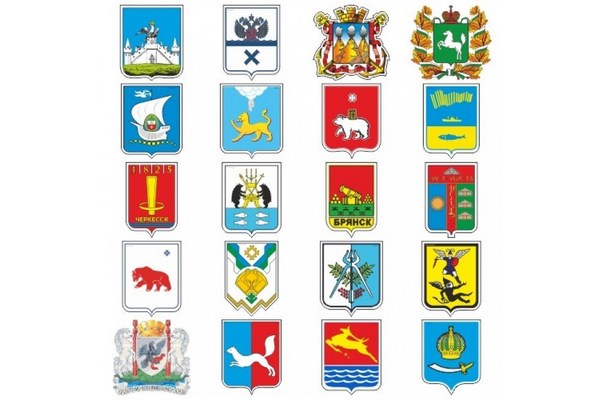

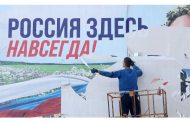
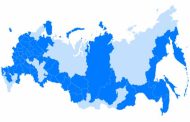
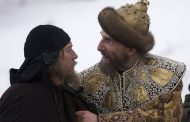






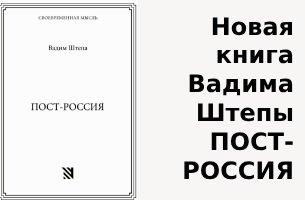



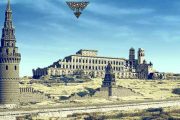

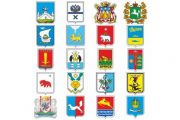

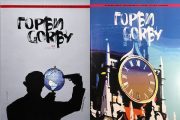





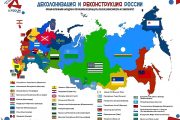

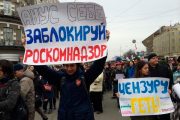
3 Comments
Pingback: Российский федерализм как его не было | Регион.Эксперт
Pingback: Федерация или сохранение метрополии? | Регион.Эксперт
Pingback: Путин в Давосе: многообразие для мира, но не для своей страны | Регион.Эксперт